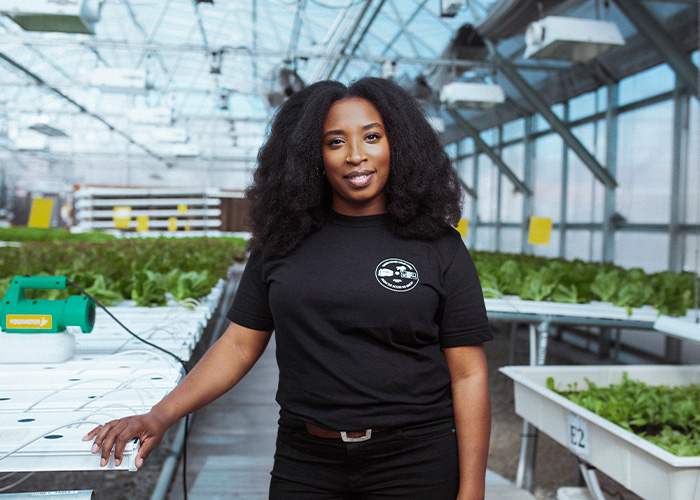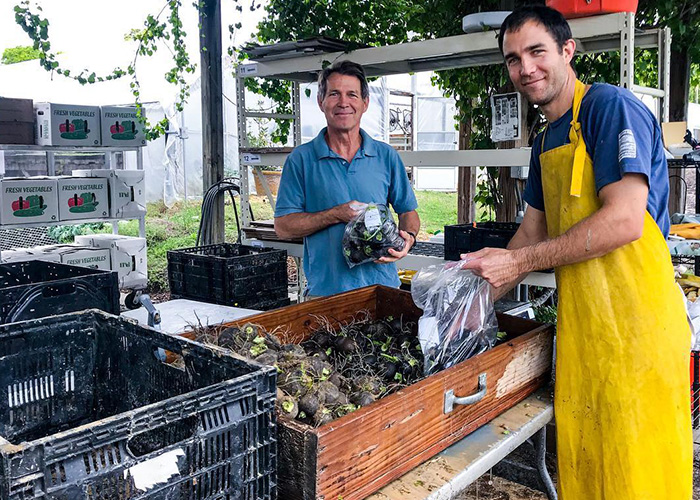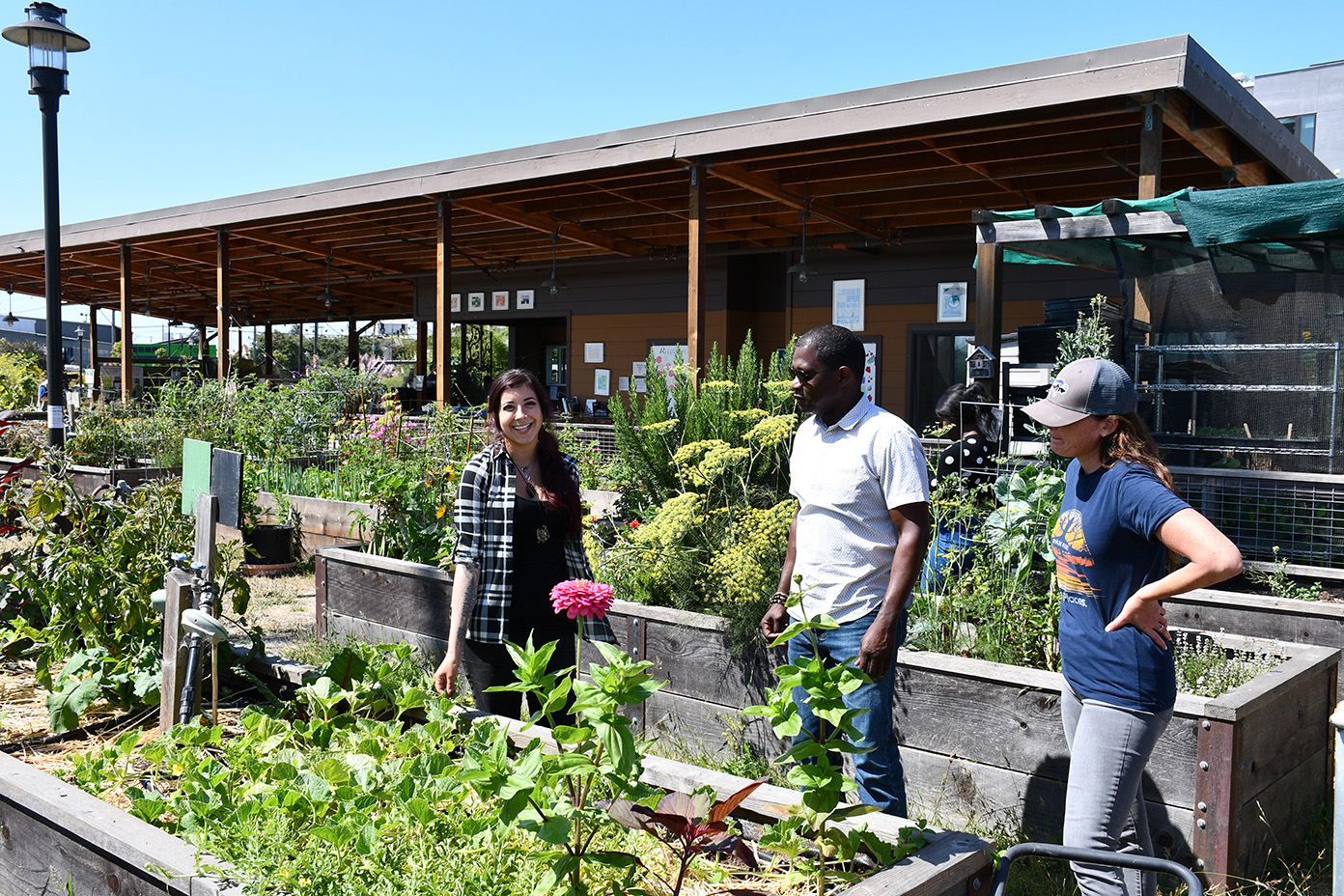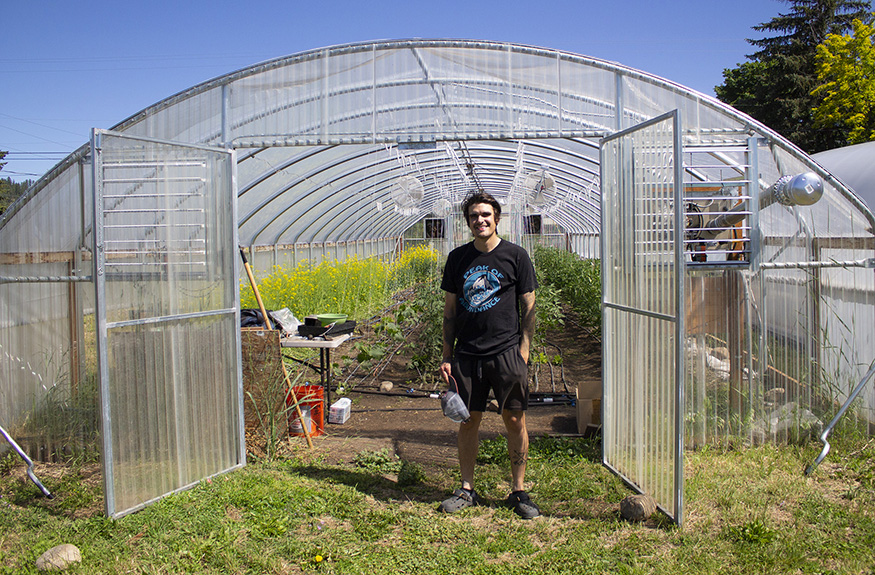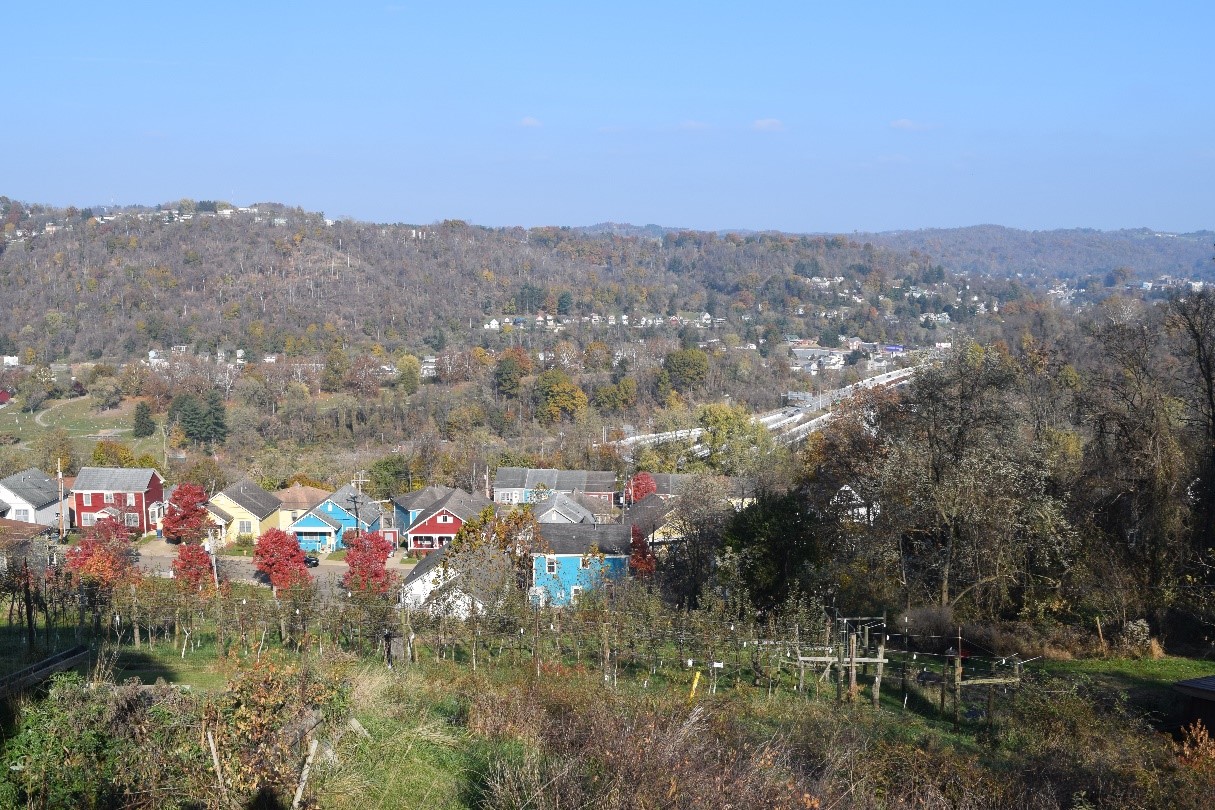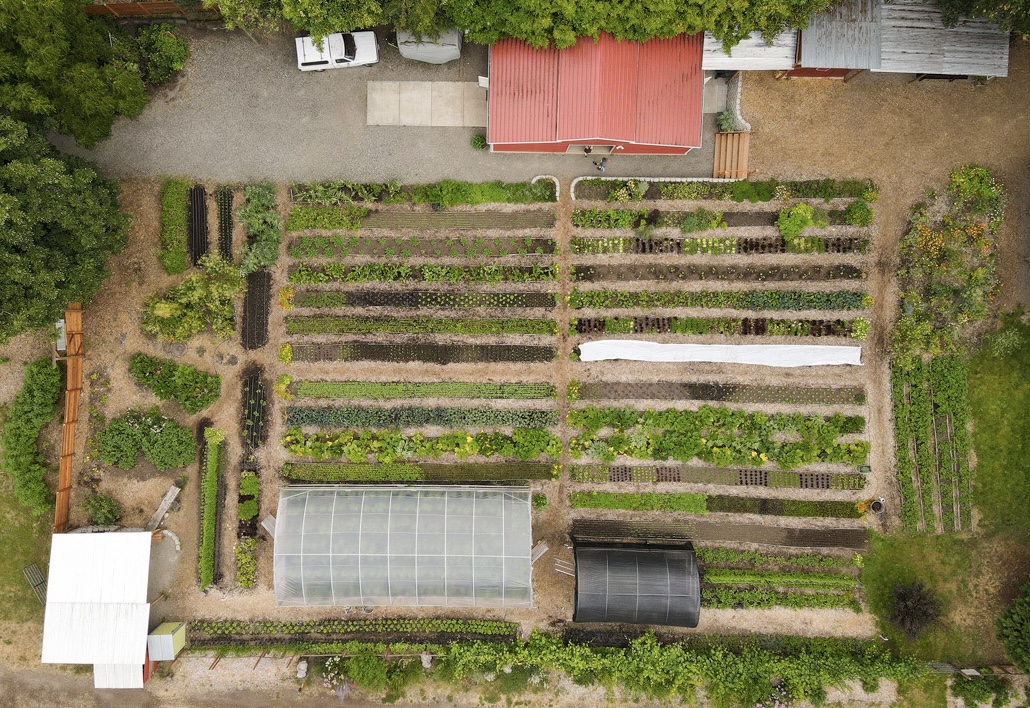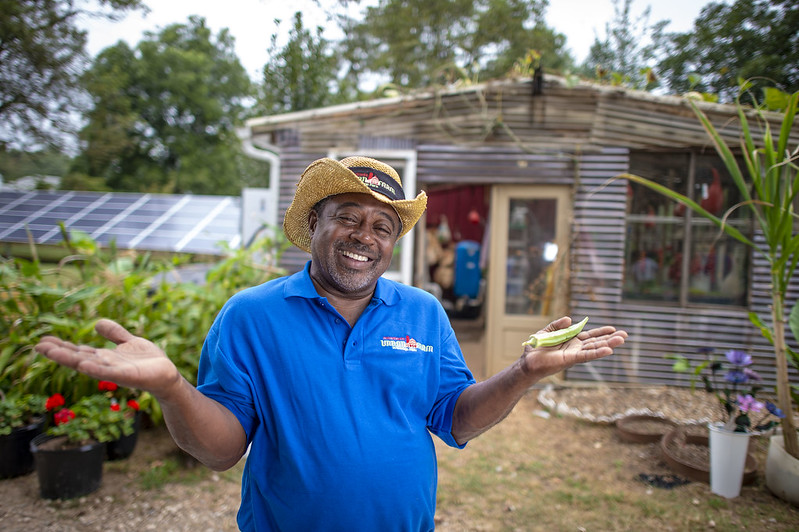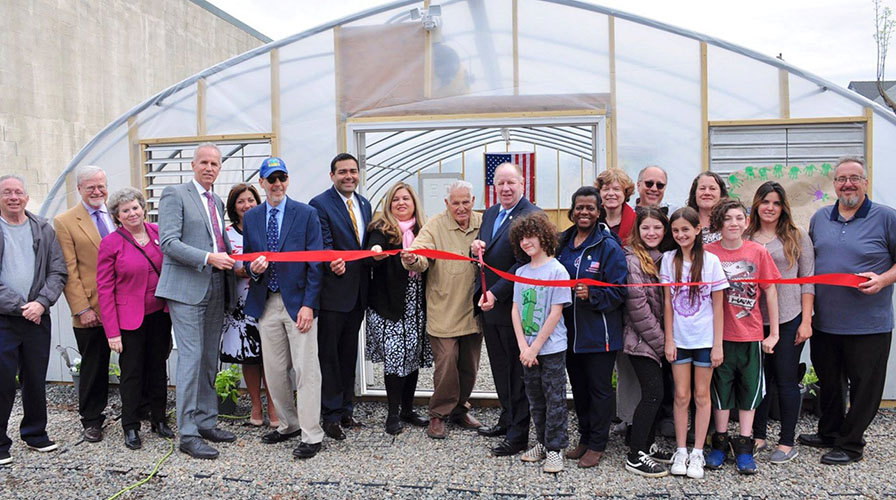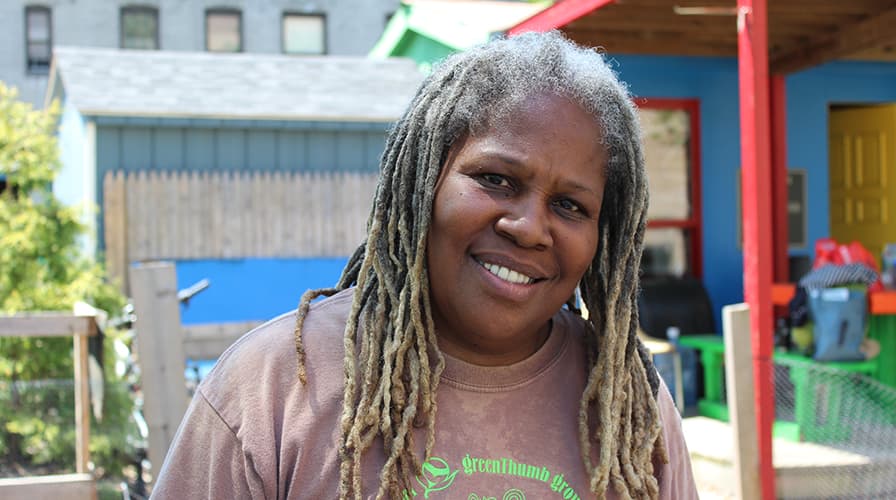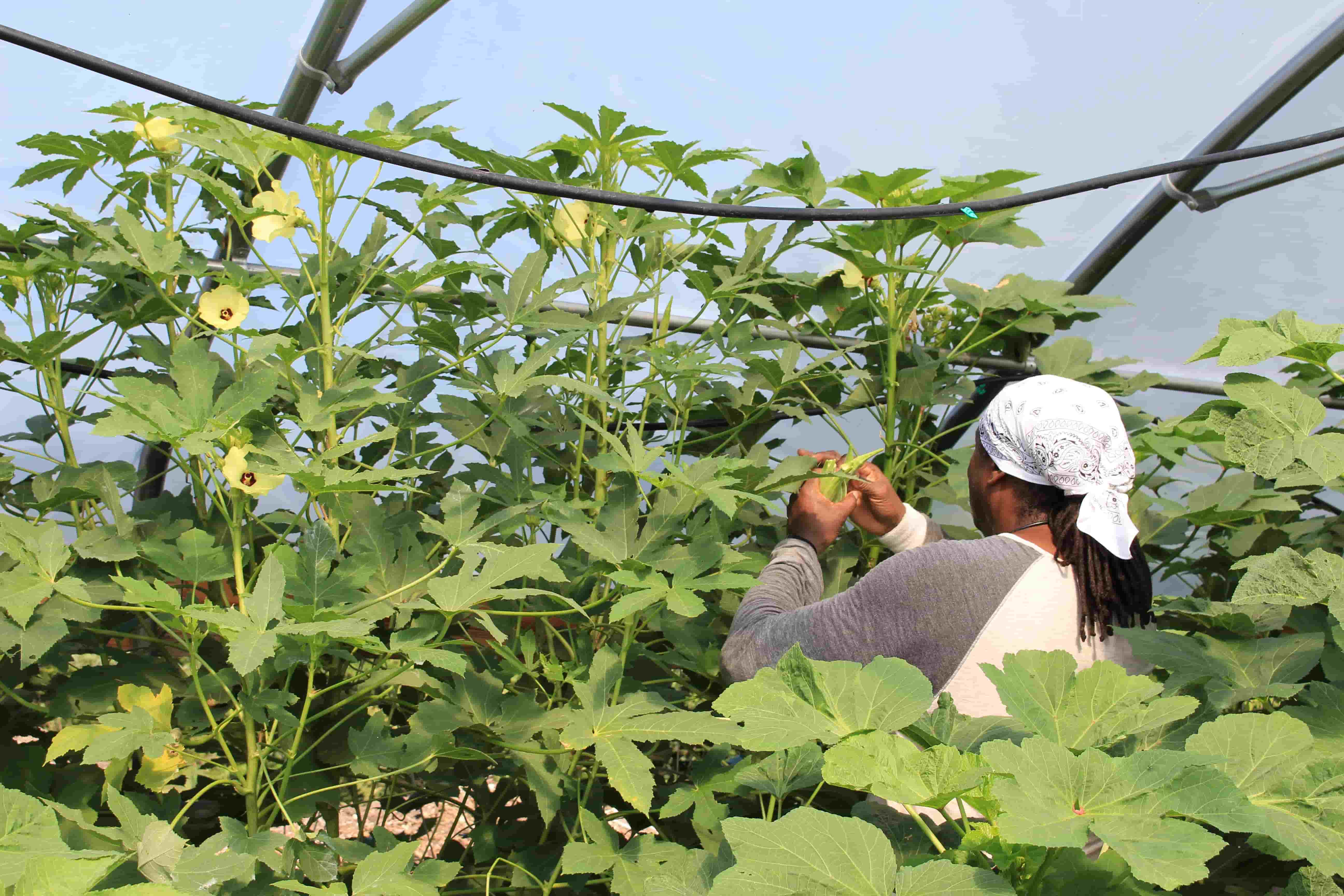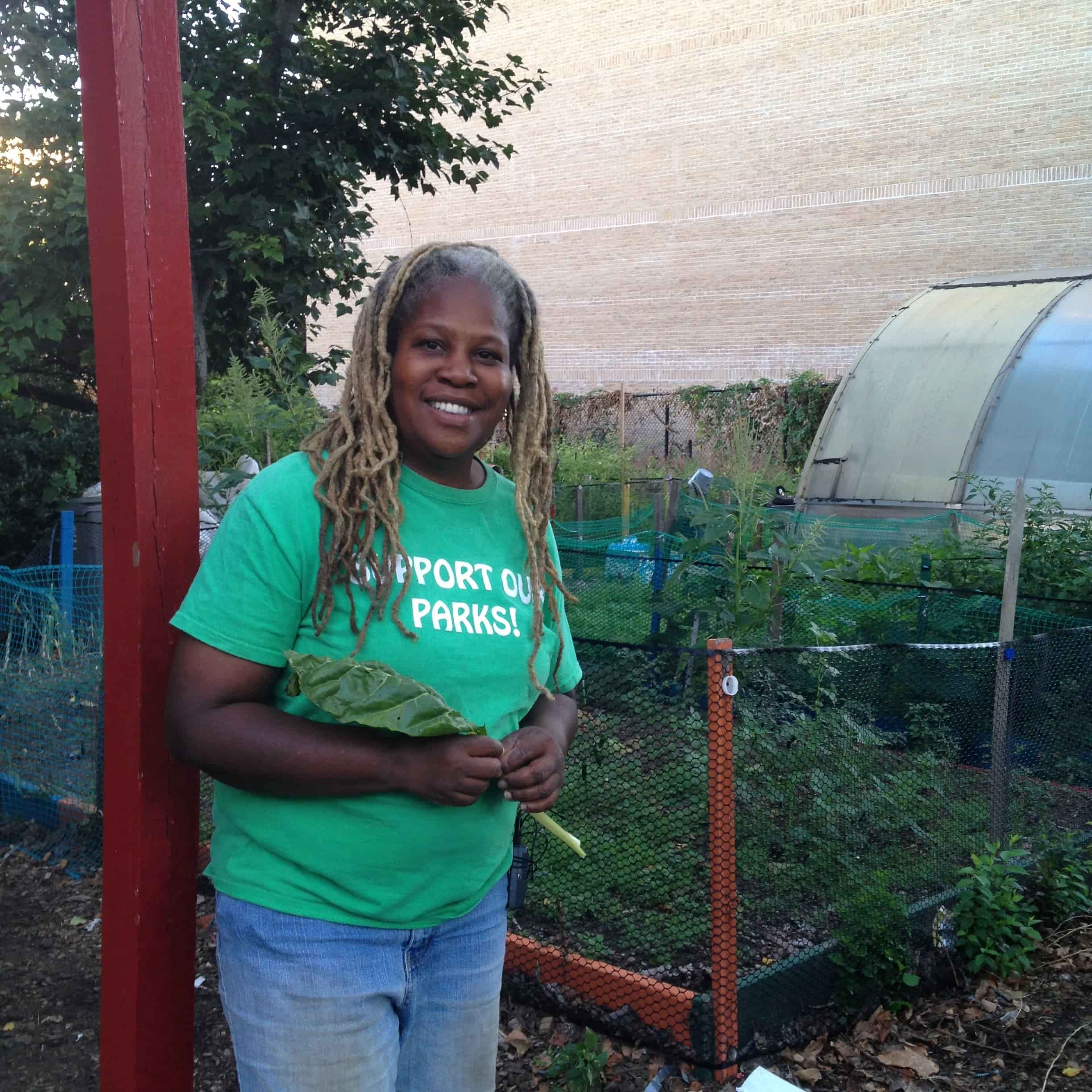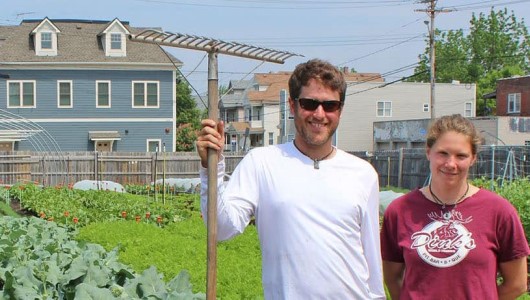Are you gardening or farming in an urban environment? USDA has resources that can help you start and grow your operation.
Urban agriculture includes the cultivation, processing, and distribution of agricultural products in urban and suburban areas. Community gardens, rooftop farms, hydroponic, aeroponic and aquaponic facilities, and vertical production, are all examples of urban agriculture. Tribal communities and small towns may also be included.
USDA is committed to working with farms of all sizes and in all locations, including those in urban areas. Agencies across USDA including the Office of Urban Agriculture and Innovative Production (OUAIP), which stretches across multiple agencies, have programs and resources available.
Underlined Header
Starting Your Farm or Garden
Access to capital lets you to buy or lease land, buy equipment, and help with other operating costs. Learn more about accessing to land and capital. If you’re new to farming, check out our resources for beginning farmers. We can help you with resources for your business plan, something every farm business needs. You can also connect with a mentor from SCORE for free business planning help.
Underlined Header
Loans
Farm Service Agency (FSA) offers many types of loans, including microloans tailored specifically to small-scale farms. See more information on USDA funding for your operation and use the Farm Loan Assistance Tool to determine what might work well for you.
Rural Development can help urban producers locate guaranteed financing through the Business and Industry Guaranteed Loan Program.
Underlined Header
Risk Management
Risk Management Agency (RMA) can help you insure your crops against losses due to unforeseen circumstances, including the micro farm policy specifically tailored to small operations, including farms producing specialty or organic commodities. Learn more about the available insurance policies and disaster recovery programs from a local insurance agent, by visiting your local USDA service center or by using the free disaster assistance discovery tool.
Underlined Header
Technical and Financial Assistance
Natural Resources Conservation Service (NRCS) offers technical and financial assistance with conservation practices, including high tunnels, soil health management systems, composting facilities and irrigation. They can help you identify your goals with and developing a conservation plan.
Underlined Header
Training
Local and regional agricultural organizations like Cooperative Extension offer free training and expertise.
Underlined Header
Grants for Innovation
USDA's Office of Urban Agriculture and Innovative Production offers competitive grants for projects that improve local food access, support farmer infrastructure, or increase production by urban farms or food forests.
Conservation Innovation Grants offer funding for on-farm projects, some of which are targeted towards urban farms. Farmers apply for projects that develop new approaches, practices, and technologies to further natural resource conservation.
Marketing and Selling
Programs offered through FSA, the Agricultural Marketing Service (AMS), and the Food and Nutrition Service (FNS) can help you reach consumers in new ways and open additional revenue streams when selling products.
Underlined Header
FSA Programs
Farm Storage Facility Loans (FSA) provide low-interest loans to build, upgrade, or purchase permanent or portable facilities to store commodities, including fruit and vegetable cold storage, washing, packing, and handling buildings and equipment.
Underlined Header
AMS Programs
Farmers Market Promotion Program (FMPP) funds projects that develop, coordinate and expand direct producer-to-consumer markets like farmers markets. Agricultural businesses and cooperative are among the eligible entities.
Underlined Header
FNS Programs
The Women, Infants, Children (WIC) Farmers’ Market Nutrition Program and Seniors Farmers Market Nutrition Program issues coupons for eligible foods from state-approved farmers, farmers' markets, or roadside stands. Contact your state for eligibility and information on how to accept WIC as payment when selling products directly to consumers.
Underlined Header
Service Centers
If you haven’t worked with USDA previously, your first step should be to contact your USDA Service Center and make an appointment.
- We have Urban Service Centers in several cities. See if we have an Urban Service Center near you.
- If your urban operation isn’t near one of the Urban Service Centers, you can reach your local staff at one of our more than 2,300 Service Centers across the country. Find your nearest office.
Be sure to ask what documents you’ll need.
Some considerations before your visit:
- What is your vision for your garden or farm?
- What are your challenges?
If you need information in a language other than English, we offer translated materials and free interpretation services.
Underlined Header
Farmer Coordinators
Some states have NRCS urban conservationists who can help meet your specific needs as an urban farmer. Contact your local USDA service to find out if your state has one, and what other resources are available.
Beginning Farmer and Rancher Coordinators are USDA team members who can help you understand the USDA process and find the right assistance for your operation. We have coordinators in every state across the country.
Your local USDA Extension office and Conservation District will also have resources for you.
Underlined Header
Self-service Options
Learn how to sign up for a farmers.gov account. You can view loan information and manage conservation business online.
We also have a number of tools to help you: find the right loan; learn about recovery options after natural disasters, find a crop insurance agent, or discover conservation options.
Other Types of Assistance
- Community Groups, Schools, and Non-Profits - Some assistance is specifically designed for the needs of community organizations, school groups, non-profits, and other entities involved in urban agriculture. The National Institute of Food and Agriculture (NIFA) has multiple grants available that can help you fund projects that increase food access in your community. AMS and the multi-agency Office of Urban Agriculture and Innovative Production (OUIAIP) offers grants and Composting and Food Waste Reduction Cooperative Agreements that can help you making lasting impacts in your community. Learn more on USDA’s Urban Agriculture website.
- Urban Forestry - The Urban Forestry Toolkit, is a helpful resource for communities wanting to implement urban forestry.
- Underserved Farmers - We offer help for the unique concerns of producers who meet the USDA definition of underserved including beginning, socially disadvantaged, limited resource, and military veteran farmers. Use this self-determination tool to determine if you’re a limited resource producer. In addition, women in agriculture are helping to pave the way for a better future and are eligible for special provisions through some programs. Agrability offers services that can help adapt and modify equipment to be more accessible.
- Farmers in Small Towns, Where Urban and Rural Meet - Rural Development (RD) has programs and resources available to help farmers and communities in small towns or the urban/rural interface.
- Organic Farmers - if your urban farm is organic, USDA offers certification assistance and conservation practices. Learn more on our Organic Farmers webpage.
- Tribal Communities - farmers in rural and urban areas, and in between, and may be interested in this and other USDA Tribal programs and services.
Urban County Committees
USDA’s Farm Service Agency county committees allow grassroots input and location administration of federal farm programs. Nationwide, more than 7,700 members of the agricultural community serve on FSA county committees. The committees are made up of three to 11 members who serve three-year terms.
Urban county committees administered by USDA’s Farm Service Agency work to encourage and promote urban, indoor, and other emerging agricultural production practices. Additionally, the county committees may address areas such as food access, community engagement, support of local activities to promote and encourage community compost, and food waste reduction.
The 27 urban county committees are:
- Phoenix, Arizona
- Little Rock, Arkansas
- Los Angeles, California
- Oakland, California
- Denver, Colorado
- Atlanta, Georgia
- Chicago, Illinois
- New Orleans, Louisiana
- Boston, Massachusetts
- Detroit, Michigan
- Grand Rapids, Michigan
- Minneapolis-St. Paul, Minnesota
- Jackson, Mississippi
- Kansas City, Missouri
- St. Louis, Missouri
- Las Vegas, Nevada
- Albuquerque, New Mexico
- New York, New York
- Cleveland, Ohio
- Portland, Oregon
- Philadelphia, Pennsylvania
- Pittsburgh, Pennsylvania
- Columbia, South Carolina
- Memphis, Tennessee
- Dallas, Texas
- Houston, Texas
- Richmond, Virginia
Learn More About County Committees and County Committee Elections
Other Opportunities
- Advisory Committee for Urban Agriculture meetings are open to the public, check the link for updates.
- Research and Promotion Programs from the Agricultural Marketing Service.
- Learn how to connect with your agricultural community through local partners, county committees and USDA.
News
Visit usda.gov/urban for Urban Agricultural News
Additional Resources
Other USDA Web Resources for Urban Growers
- Urban Agriculture and Innovative Production Grants
- Composting and Food Waste Reduction Cooperative Agreements
- Farm Service Agency Cooperative Agreements
- Natural Resources Conservation Service: Urban Agriculture
Brochure and Fact Sheets
- USDA's Urban Agriculture Programs at a Glance
- USDA's Innovative Production at a Glance
- USDA Urban Agriculture and Innovative Production Grants
- Farm Service Agency Support for Urban Agriculture
- Federal Advisory Committee for Urban Agriculture and Innovative Production
- Reducing Food Waste
Videos and Interviews
Find Your Local Service Center
USDA Service Centers are locations where you can connect with Farm Service Agency, Natural Resources Conservation Service, or Rural Development employees for your business needs. Enter your state and county below to find your local service center and agency offices. If this locator does not work in your browser, please visit offices.usda.gov.
Learn more about our Urban Service Centers.
Visit the Risk Management Agency website to find a regional or compliance office or to find an insurance agent near you.

